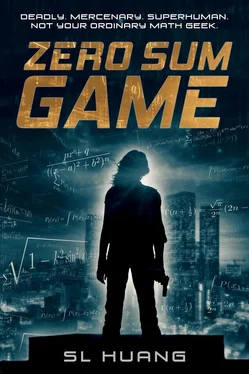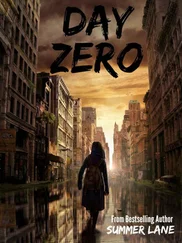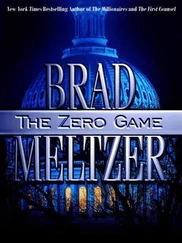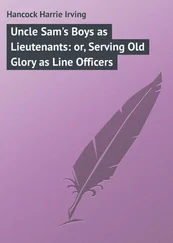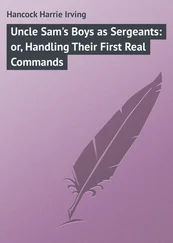“So, why can’t you hack them all and find out?”
Checker literally threw up his hands. “I’m not a slot machine! Do you have any idea how secure these systems are? And how much cross-checking happens? I can’t hack human brains!”
“What’s going on?” asked Rio. He reached into one of the stacked crates and tossed a ration bar at me as he spoke.
Right. Food. I tended to forget about that. I tore it open.
“Hey! Not near my machines!” squawked Checker.
I obligingly backed up a few paces. “Checker’s pussying out,” I answered Rio.
“Pussying ou—! First of all, gendered slur, not cool, Cas Russell, and second of all, you’re asking for something patently impossible. Look, tracking’s one thing, but to differentiate ourselves from a thousand different phishing scams you’d need—”
“Explain,” said Rio, leaning up against the doorway and crossing his arms.
Checker swallowed and then answered while shying away from eye contact, concentrating on his monitors instead of on Rio. “Cas’s idea here has two parts to it. Tracking the accounts is turning out to be…well, not easy, but doable. Cas’s math on that is pretty spectacular, and the uniqueness of format in the account information, even though we only have numbers and amounts, is—”
Rio cleared his throat and Checker stopped like an animal in headlights, mouth working. The room wasn’t large enough and was too full of equipment for him to shrink away from Rio effectively, but he certainly looked like he wanted to try.
I took pity on him. “We’ll be able to get a pretty complete account list,” I explained. “It’s a staggering amount of data—we’re tracking the money through layers and layers of banks and front businesses—but by the end of today, we’ll have a huge list of the exact paths of all Pithica’s revenue streams. We’re talking thousands of sources here.”
“But?” said Rio.
I huffed out a frustrated breath. “My thought had been to send massive tip-offs,” I said. “Warn people they’re being stolen from, or that their money isn’t going where they think it is, the idea being that Pithica can’t have more than a couple key people converted to the cause. And we can actually do that, but Checker pointed out—”
“We won’t be taken seriously,” finished Checker. “It’s not a matter of running a scam on a single bank and convincing it we’re sending legit warnings. Our account list—their network comes from all over the world.”
“And the revenue sources are diverse,” I said. “All different banks, all different businesses and organizations. We could send a mass communication, but it would be dismissed in less than zero time. It probably wouldn’t even get past most people’s spam filters.”
“We lack legitimacy,” said Checker. “What about this? What if I sent some sort of Trojan that…I dunno, does something to all of these accounts, so when they’re checked on people see something happening—”
“But if you’re right, nobody will check, even if we tell them to. Not for a while, anyway, and not all at once. We need everyone to jump in fright and move their money simultaneously—if the transition’s slow enough, Pithica will be able to deal with it, get out in front of it—”
Checker’s frustrated words overlapped with mine. “It’s verifying the message, not delivering it. Without some virtual psychic paper that grants us authority—”
“Wait,” I said.
“What is it?”
I could feel a smile starting. “We happen to know a shadowy multinational organization who can pull every string in the book.”
“Wha—bad idea!” Checker cried.
“Do you have a better one? We don’t have time to sit on this. Pithica knows we’re out here, they know we have this information—it’s only a matter of time before they either track us down or change their revenue structure enough to make it not matter.”
“Those guys already said they’d kill you!” Checker sputtered.
“Then they can’t do much worse, can they?” I said.
Checker pressed a hand against his forehead in apparent pain. “Why do I have the feeling you’re going to get your own way on this? No matter how much I object to it?”
“Because I am.” I turned to Rio. “Have a spare cell I can burn?”
He stepped past me into the narrow kitchen, opened a drawer to reveal a jumble of disposable cell phones still in their packaging, and pulled one out.
“Come on! You can’t possibly think this is a good idea!” Checker called from over by his computers.
Rio ignored him. “You think this is a viable plan?” he asked, handing me the phone.
“It’s what we’ve got,” I said.
“These are dangerous people.”
“And since when do you care about that?”
He raised his eyebrows. “I attach somewhat greater value to your well-being than to my own.”
Right. He attached more value to pretty much anyone else’s well-being than he did to his own. We were all works of God, I thought. I wondered if he viewed us like a security guard with no appreciation for art might view the paintings in a museum he’d been charged with safeguarding—bits of paper and wood and canvas mushed together with some oily and plasticky stuff that someone else told him were worth protecting at any cost.
“Are you going to try to stop me, then?”
“No. You are quite capable of looking after yourself.”
I blinked. He did still trust my skills, then—at least against anyone who wasn’t Pithica. The sense of disgruntlement I hadn’t even realized I’d been feeling against Rio faded somewhat.
“At least wait until we’ve finished our end of it,” begged Checker. “Come on, this isn’t the movies; we can’t just hit ‘send all.’ Who knows what other difficulties we might run into.”
“You’re right,” I said. I went over to Checker and tossed the phone back to Rio. “I should stay here and work. You mind taking a ride and making the call?”
Checker groaned.
“What do I ask for?” said Rio.
“A man called Steve,” I answered. “Tell him what we’re doing.”
“We’ll need high-level, verified alerts sent out to a variety of government organizations, both here and overseas,” said Checker, giving up. “Here in the U.S. it’ll be the Secret Service—I can put together a list, but with the whole shadowy multinational organization thing they have going, they might know better than we would. Some support on spoofing our messages to the banks to be authentic would be helpful, too.”
“They’ll want us to turn over the information,” I warned Rio, remembering how thoroughly Steve’s group had dismantled both Courtney’s and Checker’s houses. I thought of Anton and Penny, and wondered how many people would die if we handed over the data. “Whatever you do, don’t agree.”
“Do not worry,” said Rio. “I am not accustomed to allowing anyone to make requirements of me.”
That made me quirk a smile. I wouldn’t have wanted to be on the other end of his phone call. “Checker, do you have a secure email address we can give them to coordinate through? Something they wouldn’t be able to trace?”
He grumbled something unintelligible about signing our own death warrants, but wrote one down. I added Steve’s number from memory and handed Rio the paper; he folded it carefully and tucked it in an inside pocket.
“I shall return in a few hours. Cas, if necessary, I have some armaments on the roof.”
“Good,” I said, and turned back to Checker, whose face was a funny shade of white. “Okay, let’s finish this.”
Five hours later, Rio hadn’t gotten back yet, and Checker and I were almost done with our notification algorithm.
Читать дальше
